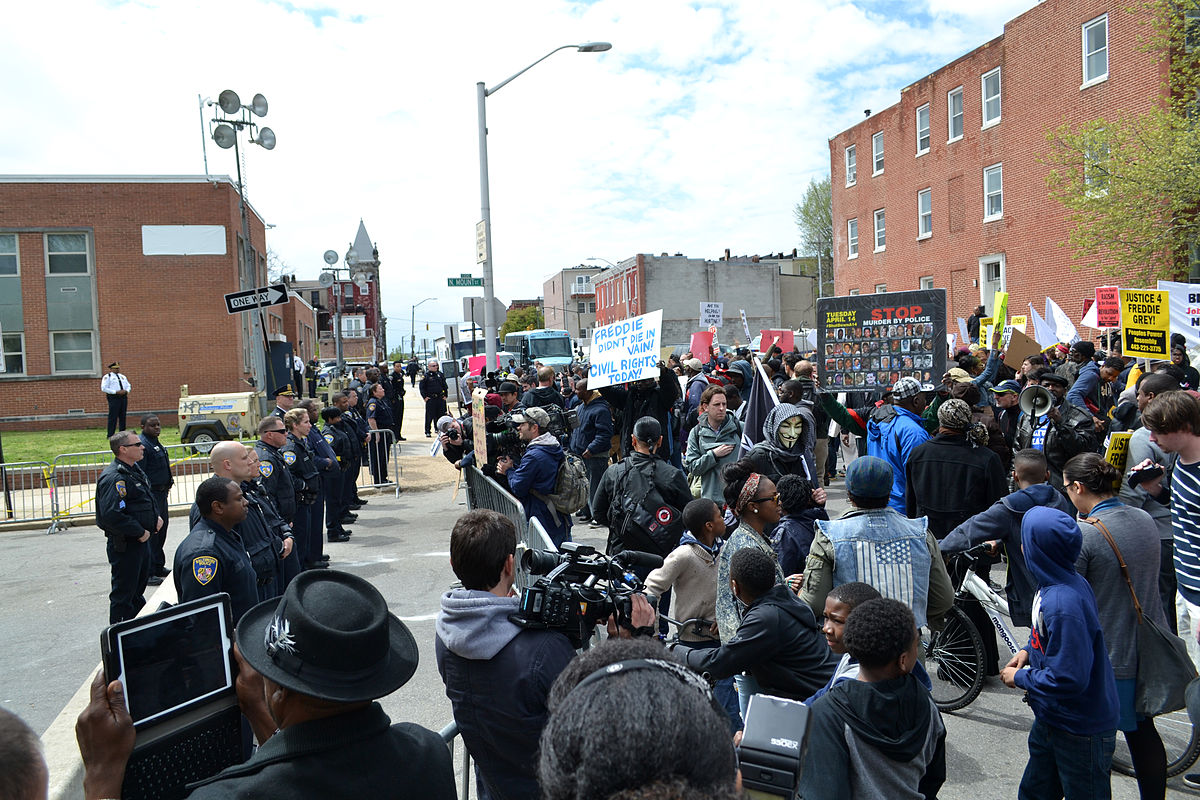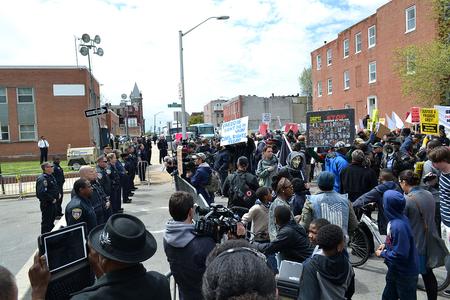Baltimore: State of Economic Despair
Violence stirred by Freddie Gray’s death has roots in economic and social isolation, experts say.

Stephen Henderson opened Detroit Today with a short commentary about Baltimore and the violence that has erupted in response to the death of Freddie Gray, a 25-year-old man who died in police custody. Henderson lived and worked in Baltimore for several years.
Stephen Henderson:
Before I came home to Detroit in 2007, I spent a decade living in Baltimore – the small east-coast city that has the most in common with Detroit. It’s a city with a proud manufacturing history, but has struggled in the wake of de-industrialization with deep poverty and isolation, particularly for African Americans in the inner-city.
Even for people who’ve never been there, Baltimore came to symbolize the perpetuation of that underclass through the work of David Simon, on television shows like The Corner and The Wire. But now, the nation is getting a front-row seat at the non-fictional tensions that exist in Baltimore.
Last week, police there arrested 25-year-old Freddie Gray, and later he died of a severe spinal cord injury. No one has been forthcoming about what happened. But the response in the streets has been intense, and growing. Peaceful protests have been incited into violent riots. And after a day of destruction on Monday, following Gray’s funeral, officials are debating whether to bring in the national guard.
There are some interesting wrinkles to Baltimore’s troubles. The city’s mayor is a black woman, and daughter of a political scion who paved the way for black political leadership in the city. The police chief is also African American. Yet still, the anger and resentment in the city’s toughest neighborhoods boils over. Is this about race? Is this about class? Is it about both, and the interaction between them?
Henderson spoke with Lester Spence, Associate Professor of Political Science at Johns Hopkins University in Baltimore; Kenneth Burns, Reporter for Baltimore Public Radio station WYPR; and Reverend David Bullock of the Highland Park, Michigan branch of the NAACP.
Professor Spence says the violence began when high school students were prevented from going home on city buses effectively stranding them in a crowd. He thinks a number of factors including poverty and police disrespect of citizen’s rights are contributing to the uprisings around the nation.
Reporter Kenneth Burns said the people of Baltimore are nervous and in fear that the unrest will continue. Reverend Bullock says what happened in Baltimore could happen in Detroit. The two cities are similar in terms of population make-up and concentrations of wealth in the city core. He says people are becoming fed up with unjustified responses from law enforcement.
Hear the entire conversation by clicking on the audio link under the headline.
Views expressed in Stephen Henderson’s essays are his own and do not necessarily reflect those of WDET, its management or the station licensee, Wayne State University.

